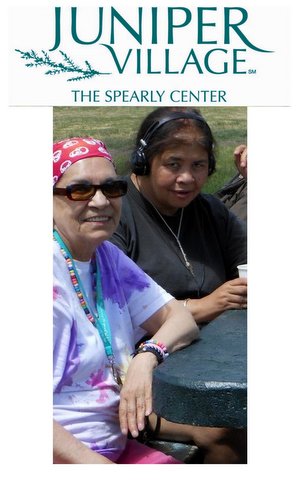This
February our Alive in All Seasons’ theme is Art: “Awaken Your
Passion”. In a moving quote from Honoré de Balzac we are reminded that
art and passion are inextricably linked; he states, “passion is universal
humanity; without it, religion, history, romance and art would be useless.” Art
is truly a conduit that allows us to experience the richness and brilliance of
all that life has to offer. Art can have a profound effect upon us by providing
nourishment to our spirit and soul.
As you
know there is always something special going on here at Juniper Village at Spearly
and this February we will celebrate another wonderful month filled with
memories, laughter and the opportunity to create! This month we will open
ourselves to various forms of art. We will be taking field trips to local
museums, learning about the Great Masters, and creating masterpieces of our own
using various mediums.
Please
join us for our Valentine’s Day Bash featuring The Cupid Shuffle at 2:30 pm on February 14th,
our Spearly Family Craft Creation art project with light refreshments at 7:00
pm on February 20th, and our 5th Annual Spearly Art Show at
2:00 pm on February 27th. We encourage you to review our newsletter calendar
for other offerings and attend any or all of the activities that are of interest
to you.
Come get
together with us for our Alive in All Seasons programs this February and Awaken Your
Passion!









